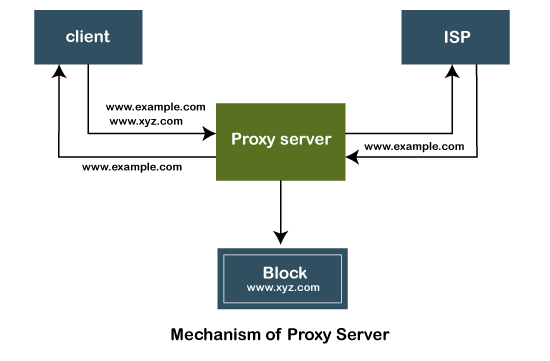Within today's digital age, online confidentiality and safety have turned into crucial issues for internet users. With https://omeka.net on the rise and data breaches making news, many people and companies are looking for effective answers to protect their online activities. One such option that stands out is the use of proxies. By acting as https://anotepad.com/notes/tqp7eqy9 between users and the internet, proxy servers not only enhance online security but also offer numerous benefits for gaining access to content and maintaining anonymity.
Grasping what a proxy server is and how it operates is essential for anyone seeking to navigate the challenges of online interactions securely. Whether it is for personal use or to bolster a company's cybersecurity measures, the benefits of using a proxy can significantly impact the way we experience the web. From safeguarding your personal information to improving productivity, exploring the different types of proxies and their particular applications can lead to a more informed and safer internet environment.
Comprehending Proxy Servers and Their Functionality
Proxies serve as intermediaries between individuals and the internet, sending requests from individuals to the websites they desire to access. When a client makes a query, the proxy sends it to the destination server while obscuring the user's original IP address. This process not only helps in preserving anonymity but also enables for filtering information and implementing security policies.
There are multiple types of proxy servers, such as HTTP, Socket Secure, and open proxies. Each type fulfills unique functions, ranging from managing specific data exchanges to providing a low level of user identity masking. For instance, HTTP proxies are mainly employed for web data, while SOCKS proxies can manage multiple types of data flow. Grasping these differences helps clients pick the right proxy according to their preferences.
In addition to enhancing privacy, proxy servers can boost online security. By screening traffic and preventing access to malicious sites, they can minimize the risk of malicious software infections. Moreover, they can cache frequently accessed content, leading to quicker load times and reduced bandwidth usage. All in all, proxies are essential tools for anyone looking to navigate the internet more safely and efficiently.
Pros and Drawbacks of Proxy Servers
Using proxy servers offers several benefits for internet users seeking enhanced privacy and security. One of the key benefits is the ability to hide your IP address, which aids safeguard your identity and location from potential threats. By directing your internet traffic through a proxy, you can access websites without detection, minimizing the chance of tracking and surveillance by outside observers. Additionally, proxies allow users to overcome geographical restrictions, allowing access to content that may be blocked in particular regions.
Nonetheless, relying on proxy servers includes certain risks. Not all proxies provide the same level of security, and free proxies, in particulars, can expose users to privacy breaches and data theft. Some may record user activities or place advertisements into your browsing sessions. It is vital to choose reputable proxy services to lessen these risks and ensure that your online activities remain private. Moreover, the employment of poorly configured proxy servers may introduce vulnerabilities that hackers could utilize.
Another consideration is the effect on internet speed and performance. While some proxy servers can speed up connection times by storing frequently accessed content, others might result in latency and slow down your browsing experience. Comprehending the benefits and risks associated with proxy servers is important for making wise decisions that match your online needs and security requirements.
Proxies in Business and Gaming
In the corporate world, proxies play a essential role in improving cybersecurity and protecting critical data. Companies can direct their internet connection through a proxy, which acts as an middleman between employees and the web. This setup not only protects IP addresses but also enables businesses to oversee and control internet access, making sure that staff access only approved content. By segregating corporate networks from the public internet, proxies help mitigate risks associated with online threats, making them essential tools for safeguarding corporate information.
Gaming also benefits significantly from the implementation of proxy servers. Gamers often face issues such as lag and geo-restrictions when trying to access various game servers. Using a proxy can minimize latency by optimizing network paths and provide access to geo-blocked games, allowing players to experience content that may not be available in their area. Additionally, proxies can help prevent IP bans in online games, allowing players to maintain uninterrupted access to their accounts and gaming experience.
Moreover, the competitive gaming environment has led many players to use proxies for an competitive advantage in their strategies. By enabling gamers to mask their real IP addresses and access multiple accounts without the risk of detection, proxy servers can improve performance and provide important insights. This usage, however, raises ethical questions about fair play and professionalism, underlining the importance of weighing the benefits provided by proxies with ethical gaming practices.

